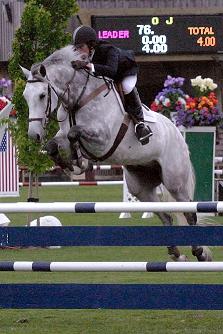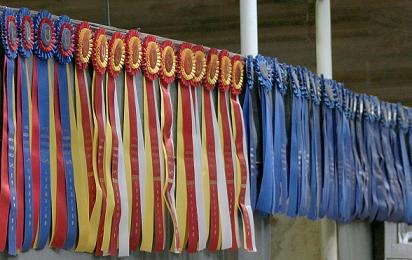Show Jumping
Favorite Sports |History |Benefits
Explore the amazing sport of show jumping. Learn about the rules, history and benefits, then you will understand why show jumping is my favorite sport!
Show jumping is also know as stadium jumping or jumpers. Classes are held at most horse shows all over the world.
Grand Prix is the highest level an individual can compete in, where prize money can be as high as $250,000.
The Olympic Games have included show jumping since 1912 where international teams and individuals perform. Show jumping is one of a few sports where men and women compete equally.
The horse and rider must have scope, courage, and be able to handle sharp turns and bursts of speed to navigate the demanding course.
They need to be extremely athletic, have a special bond, and years of training to be able to jump large fences safely.

Experience the beauty and excitement of show jumping at the Northwest's largest horse show.
The Evergreen Classic Benefit Horse Show is held in August at Remlinger Farms in Carnation, Washington. This is a wonderful show on a scenic site that hosts over 500 horses. Prize money for the Grand Prix show jumping class is $40,000. Thousands of spectators have enjoyed this horse show for 30 years.
Favorite Sports |History |Benefits

Show Jumping Class Rules
Show jumping classes are held over a course with 10-16 jumping obstacles sometimes up to six feet high.
The jumps include verticals, spreads, double and triple combinations, usually with many turns and changes of direction.
The purpose is to jump cleanly over a set course within an allotted time.
Time faults are assessed for exceeding the time allowance.
Jumping faults are incurred for knockdowns and blatant disobedience, such as refusals (when the horse stops or "runs out" before a fence).
Horses are allowed a limited number of refusals before being disqualified. A refusal can also lead to a rider going over the time allowed on course.
Placings are based on the lowest number of points or "faults" accumulated.
